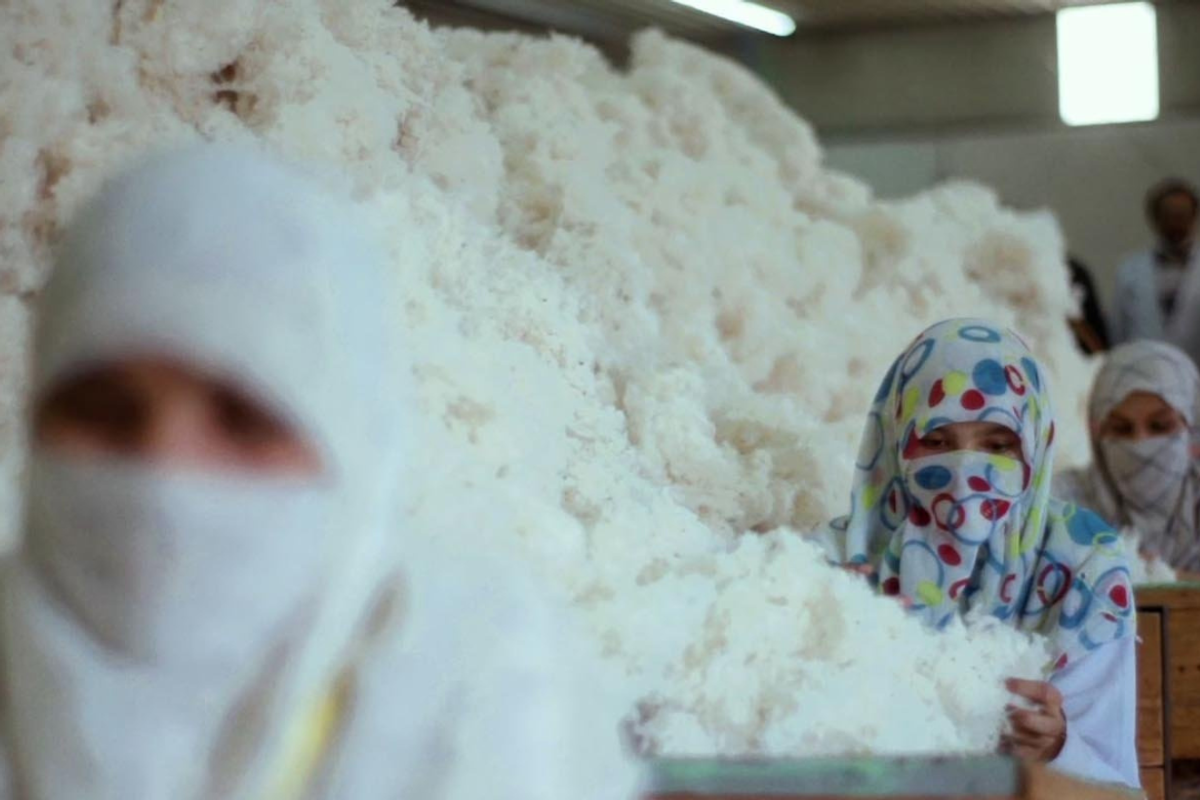Nishat Mills to boost renewable energy and expand yarn, garment operations
Textile giant targets efficiency gains with 42MW solar plan and new workwear unit while navigating higher tariffs, freight costs and competitive export markets
Business Desk
The Business Desk tracks economic trends, market movements, and business developments, offering analysis of both local and global financial news.

A view of women working at Nishat Mills
Essenza Home
Nishat Mills Ltd. (NML), one of Pakistan’s largest integrated textile manufacturers, outlined a series of expansion and energy-efficiency plans during its corporate briefing on Thursday, as the company works to navigate rising costs, global demand pressures and elevated domestic tariffs.
Management said the company will continue investing in renewable energy, with 38 megawatts (MW) of solar capacity already installed and another 4MW under planning.
NML is also considering investment in a 45-ton-per-hour steam boiler and battery-storage systems to reduce reliance on high-cost grid electricity. The company’s annual electricity requirement stands at about 50MW.
NML plans to expand its open-end yarn capacity by adding 3,000 rotors, bringing the total to 13,000. Construction is also underway for a new workwear garments unit scheduled for commissioning in fiscal year 2025, and a pilot project has already been launched to maximize operational efficiency.
The company is additionally increasing its exposure in agriculture and dairy through Nishat Sutas Dairy Ltd. The board has approved up to PKR 5 billion in investment, of which PKR 3.9 billion has been deployed as of June.
Competitive pressures and cost increases
Management said profit margins in Europe are becoming more competitive as countries facing higher U.S. tariffs, including Bangladesh, shift their focus to the European market.
NML’s FY25 fuel mix comprises 10% coal and biomass, 7% solar, and 83% from WAPDA/LESCO, RLNG and furnace oil, depending on price competitiveness. The weighted average fuel cost ranged between PKR 35 and PKR 38 per kWh.
Operating costs rose sharply in FY25, including a PKR 920 million increase in freight expenses and an additional PKR 30 million in commissions driven by higher sales and disruptions near the Red Sea. Other income declined primarily due to lower dividend receipts.
The company sources about 70% of its cotton locally and 30% from imports.
Outlook and market strategy
Despite industry-wide challenges, including inflation, minimum wage hikes, global price pressure and the withdrawal of subsidies, management said NML maintained a normalized EBITDA profile. While FY26 may remain difficult, NML is banking on diversification into denim and technical textiles to support margins and reduce exposure to cyclical risks.
Gross margins are expected to stay around 11%. Dividend payouts have remained lower, the company said, due to rising working capital requirements and ongoing investments.
NML’s geographic sales mix includes 25% to Europe, 16% through direct exports, 16% to Asia, Africa and Australia, 30% to Pakistan, and 13% to the United States. By product, sales consist of 31% yarn, 16% processed cloth, 22% greige cloth, 15% made-ups, 10% garments and 6% towels.
Management highlighted several risks to future performance, including elevated electricity and gas tariffs compared with regional competitors, high borrowing costs and limited availability of high-quality domestic cotton.










Comments
See what people are discussing